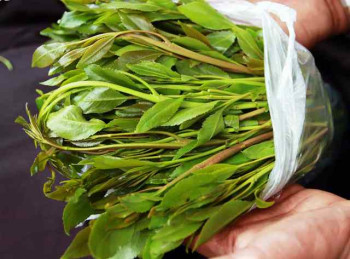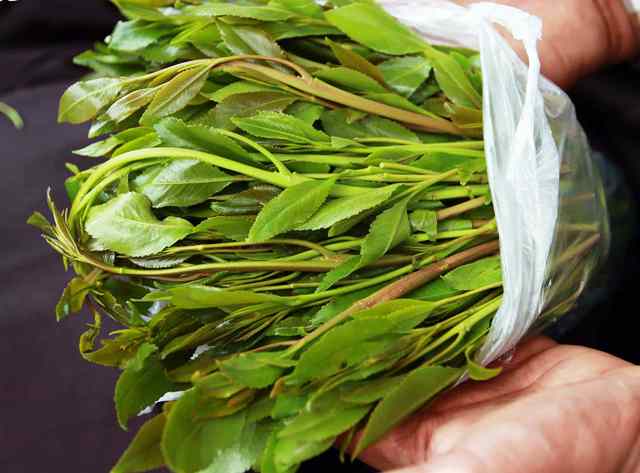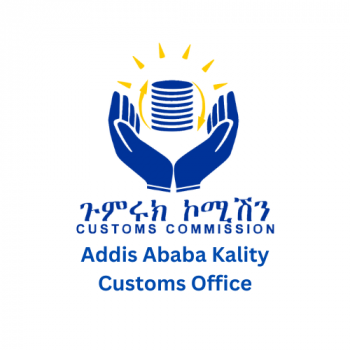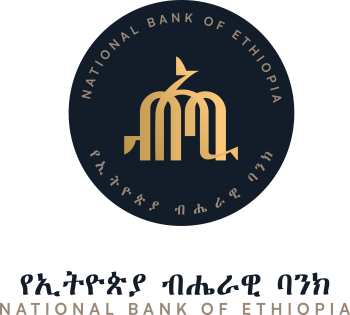
The Oromia Trade Bureau has finalized the construction of three khat trade centers with a price tag of 400 million birr apiece. Regional trade officials expect the facilities to start operations in the coming month, and all farmers, suppliers, and exporters of the stimulant leaf will be obliged to conduct transactions using the trade centers.
Gelete Chala, director of markets at the Trade Bureau, told The Reporter that the regional administration allocated the budget for the construction of khat terminals in Bedessa town of West Harerge, Aweday town in East Harerge, and in the neighborhood of Saris in Addis Ababa.
While the two in Bedessa and Aweday are reserved exclusively for the khat market, the facility located in a five-storey structure in the capital is slated to also include other agricultural commodities.
Gelete disclosed that only water supply works remain outstanding at all three facilities. He did not disclose the size of the plots the trade centers occupy, but indicated that the buildings set up on the plots vary in size from two storey to five.
Exporters, banks, the Customs Commission, and the Ministry of Trade and Regional Integration are all expected to set up shop within the market centers.
A directive issued by the Oromia regional administration two years ago outlined that secondary market centers would be established for khat and other agricultural commodities. The legislation seeks to cut out brokers and intermediaries from the trade.
The directive stipulates that the market centers must lie on a minimum of 5,000 square meters, and sets out parameters for infrastructure and service provision within the terminals. Traders must hold receipts to gain access, and the directive also outlines requirements for the end-to-end value chain in the khat trade.
The Aweday khat terminal, which lies on 2.4 hectares, consists of five blocks, two of which are three storeys high. The design reserves the second floor of each of these buildings to dining services, while the first floors are reserved for banking service providers. The ground levels are assigned to exporters and khat vendors.
The Trade Bureau wants to see up to 200 exporters set up shop in each of the terminals within a month’s time.
“We’re awaiting the regional administration’s decision on how much the rental value of sheds offered to exporters will be,” Gelete told The Reporter. “I’m sure the price won’t be inconsiderate of their capacity.”
The Trade Bureau has yet to decide how many khat farmers it expects to benefit from the trade centers. Gelete says that khat growers in the areas surrounding the terminals will be expected to conduct all of their transactions via the centers.
This includes khat growers in 21 woredas in East Harerge.
“The number of farmers expected to get involved is substantial,” said Gelete.
The farmers will not be occupying any sheds within the centers, rather they would have to travel daily to the terminals to sell their product.
The Bureau is looking to create market centers that are the final market destination for both local and export market actors. Vendors and exporters are then set to distribute their product to domestic consumers as well as markets in neighboring Somalia, Somaliland, and Djibouti.
“Our current conversation about the market centers revolves around market reach plans,” Gelete said.
The Oromia regional administration is introducing new regional directives and regulations to facilitate khat market transactions between farmers and exporters in a bid to grow export revenues from the commodity.
Regulations already being implemented are hoped to scrap traditional transactions surrounding khat, which used to include payments only for products, according to Bureau data obtained by The Reporter. The new rules will force exporters to pay taxes either electronically or in cash.
The rules also set standards for the transportation of khat and dictate the kind of documents transporters must hold when moving the commodity.
Gelete hopes to see this combat the extensive contraband trade observed across the country.
A performance report presented by the Ministry of Revenues to Parliament this week revealed that export-destined contraband has doubled over the last year. The illicit trade of khat translates to losses of USD 67 million, or a 40 percent shortfall from the figures reported by the Trade Ministry over the same period in 2023.
On the other hand, khat exporters who spoke with The Reporter on condition of anonymity argue that inconsistencies in the Oromia regional administration’s policies towards the khat trade are pushing them out of business.
“We’re unable to handle all the taxes imposed and the complicated process of the regional checkpoints, so we’re out of the business,” said an exporter.
Gelete argues that transactions between farmers and exporters must be regulated, and payments must be issued for services obtained. He says the regional administration hopes its regulations and directives will give it the upper hand in pushing out contraband trade.










